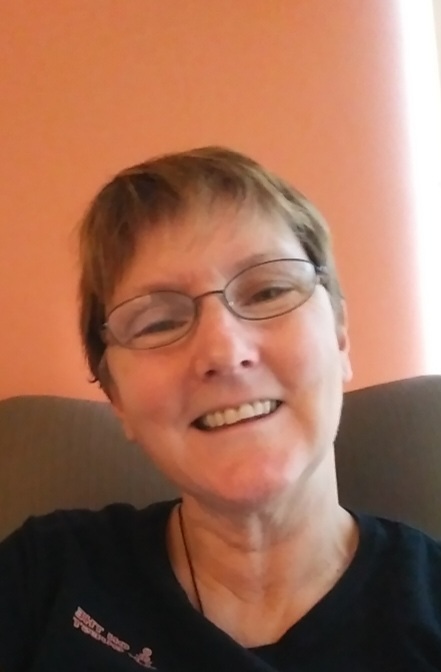By Lori Black
I am still searching. I have been for quite a while. It’s tiring, this never ending need I’ve always had to prove my existence, but the need has not and will not leave me alone. My parents adopted me as an infant in the 1950s, when secrecy was an art form nigh unto gospel. My lack-of-information-wound has always festered at whim. In the year 2000, that wound split wide open when I acquired a life-changing piece of paper— my pre-adoption birth certificate, courtesy of a new law passed that year in my home state of Oregon. Since that day, I’ve met a few maternal birth family members, including an aunt. Aunt Mary knew of my existence and delighted in meeting and getting to know me, as long as I asked no questions about my beginnings. Believe me, I tried, eventually coming to realize that, of all the secret keepers surrounding my origins, she had to be in first place. Mary remained tight-lipped even after all the important players had passed away. Then she passed away.
So did my birth mother, after having declined to meet me. Through what she had shared with the adoption agency, I knew my father had been middle-aged at the time of my conception so he had likely passed away. Despite all of this (or perhaps because of it), the legacy of secrecy still churned within. Quietly, I demanded more. The year my birth mother died was the year I turned my attention to the pristine blank space on my pre-adoption birth certificate just above the word father.
***
The date is summertime. It is 2006, the year my birth mom dies.
Between the information on the pre-adoption birth certificate listing my birth mom’s home state as Nebraska and the information I’d gathered from the adoption agency years earlier saying both my birth parents came from a small town in the Midwest, I had a strong suspicion that I hail from Nebraska, at least conceptually speaking. But I was born and raised in Portland, Oregon, and the closest I’d ever been to a farm is a Christmas tree lot. Rural happens only on vacations, and I’ve killed marigolds with a single glare. Nebraska seems as alien and as far away as the moon to me. Yet such a confluence of rural biology and urban adopted upbringing has whetted the moth-to-a-flame instincts that I’m convinced I inherited. It compels me to journey to the heartland, privately hoping there will be clues about father.
Landing at the Omaha airport, I meet the wonders of rural-ality when a car rental guy hands me a set of keys, points to a car lot, doesn’t “offer” me insurance and says, “Uh, take the white one over there.” I do, quickly, before urban commerce appears.
By seven o’clock that evening, I arrive at a nondescript building called “The Child Saving Institute” where I am to meet my fellow adopted e-mail pals during their monthly meeting, while idly wondering how one might save children, institutionally speaking. This I will never know. I do know that members of this group consisting of birth parents, adoptive parents, and adoptees, the “Adoption Triad of the Midwest” will always be my friends. All five of them.
One is my hero: Puffy and bent, well over eighty years old, Lillian could barely make it up the stairs for this informal meeting to which I’ve invited myself. She is the beautiful woman who persuaded me to make this trek in the first place. An adoptee herself, she has listened, searched, and helped others with various adoption afflictions over the years. Tirelessly she’s found pieces of the past for everyone she has helped. Except herself.
Everything Lillian ever uncovered about her own heritage is a legacy of hand-me-down lies. I’d give anything to help relieve the emptiness of a little baby born in the 1920s who just wants to know something of her beginnings before she meets her end. But instead, I thank her and all my kindred spirits for the gift of my own sacred trek.
Morning comes. I drive, heading for Lillian’s suggested destinations: A couple of small towns I call Anywhere and Everywhere. I do this while fighting off a caffeine headache spawned by the absence of Starbucks and fueled by little orange packets that I’ve not seen since 1974. Sanka. They are definitely not up to the task of assuaging my industrial strength Pacific Northwest caffeine addiction.
The drive through simple, unthreatening landscape lulls away the pain. The unbending ruler line known as Interstate 80 soothes. Crops, random grain silos, and scattered trees punctuate an otherwise flat land offering little artifice to mar the horizon. The sparse little towns that pop up are unexpected. To one coming from a place where urban sprawl lays like carpet, these towns seemed rolled upon the earth like a handful of dice tossed on a board game, tumbling at random upon the grassy heartland. I am heading to various cemeteries, looking for men with a particular birth year in a particular part of the state, but suddenly the entirety of Nebraska feels like his final resting place. I’d brought a bunch of Wal-Mart-purchased fresh daisies, one of which I donate out my car window. A fresh flower onto everyday existence. So far, my only disappointment is The Platte River. I expected a rampage but get a trickle between sandbars.
The sun is out, my windows are down and the unimpeded wind blows steady through my mind along with the fleeting memory of Nebraska’s state motto. “Equality Before the Law.” I forget what sign I saw this on, or where it was, but I will believe this motto nonetheless and lay a few demons to rest in Middle America. The white car takes me west, to a town with at least one flower shop, still no Starbucks, and two and a half cemeteries (half because the Veterans’ cemetery is more of a drive-through event.) At my first stop, I’m greeted by a willow-branch shaped woman who comes out of a trailer, crunching gravel with lengthy, deliberate steps like those of a praying mantis.
“May I help you?”
Adoptee guilt is a very real thing. She knows I’m grave hopping for my dead dad. My heart tries to throw itself onto the crushed rock beneath us. Caught. I have no right to be here, invading the secret.
“Are you looking for a relative?”
Yes. No. “Well, I’m actually traveling around trying to find something—someone—for a friend.” I hand her a list of names, culled from past sketchy Internet searches and past excursions of white-gloved museum page turning and microfiching. Praying mantis gives it a glance, hands back the paper, and says, “Those people aren’t here. I know every name of every grave in this cemetery.”
“Oh.” She does? There must be a thousand graves here. “Do you mind if I look around anyway?”
“That’s fine, dearie, but you won’t find what you’re looking for.”
I walk among the names, treading upon the driest grass I’ve ever heard or felt. He could be here. He could be anywhere. But the best thing would be if his spirit knew I was here. He: My birth father, perhaps noticing someone with some similarities to him. A short person with rapid thoughts and quick moves. Dry wit. Hatred of mathematics. Allergy to codeine. Something. Anything I can call a connection.
I drop a daisy into the parched grass.
The next cemetery produces a generic caretaker in a nondescript suit. He smells of eau de embalming but gets extra marks for not memorizing every inhabitant in his backyard. His card catalogue holds no contenders. I take the sacred walk, feel nothing, keep my daisies, and realize that preying-mantis-woman is right. I will not find father on this particular day.
Remembering Lillian’s strength in the face of her fruitless search buoys my resolve as the white car takes me away from Anywhere and toward Everywhere. I found Everywhere just outside a town, between dust and wind-battled grass, the best place I’ve ever found to sit down next to existence and write to an illusion.
Dear Dad,
This is my first letter to you. Forgive my being less than articulate. It’s hard to talk to a dead man I’ve never met whose identity remains deliberately out of reach. In reality, if not law, I am your daughter, writing to get to know you through the only thing I know about you. Me.
There’s so little of you in my mind, so much of you in my genes. Few details to steal. The rest, implied: I believe you were a hard worker all of your life, a life that could not have been easy in rural America so long ago. Tell me about your childhood, your life, whatever war you may have fought in. Your affair with my mother, the one you wish you’d never had.
I’ve conjured you from a handful of words—the only things the adoption agency would relinquish. Stout of build, blond, driven to the point of a hardened heart, grey-blue-eyed with simple dreams. Did you ever try to imagine me? Small of build, more or less blonde, driven to the point of nervous fatigue, brown-eyed with dreams that slip away like sand.
We are strangers who will never meet. Father and daughter and nothing at all. If you get this letter, write back. I’d love to hear from you.
Yours truly,
Me
I leave the letter and my Wal-Mart daisies on a bench in Nebraska, knowing there is more to come on this journey.
For today, I exist a little more.

Lori Black is the mother of a wonderfully complicated blended family and an adult adoptee still on her journey. She sees that journey as a need to connect, listen, and share with all aspects of the adoption community. Shortly after her adopted mother’s death in 1998, and as a direct result of those experiences, she began learning the craft of writing. Lori has taken professional writing courses for many years at the college level, focusing on non-fiction pieces. Her recipe with anecdotal story was published in Voices for Adoption: Memories and Stories (11/2005.)
Though now retired, Lori practiced as a registered nurse in the Pacific Northwest for 40 years in just about every field of women’s health. The majority of her career was working with women who have high risk pregnancies. She also worked for seven years in infertility care. She’s witnessed, lived through, helped with, and survived many aspects of birth, life, and death and the need for family.
Follow her on TikTok @lori3965.

